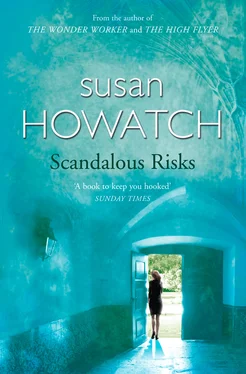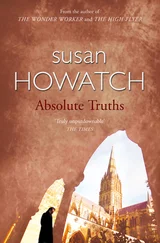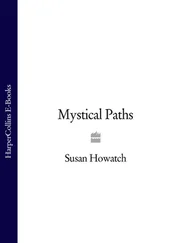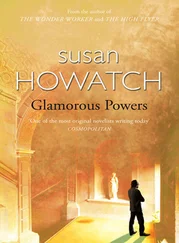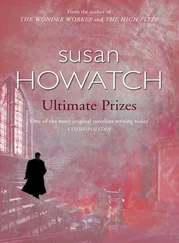I raised an eyebrow and looked hopeful.
‘What you have to do, my dear, is not simply to drift hither and thither like a piece of flotsam – or is it jetsam? – on the sea of life while you dabble in antiques and publishing or sidle off on little holidays to the Hebrides with an elderly clergyman who really should have known better than to invite you – although, of course, I do understand that darling Stephen, so soft-hearted, only wanted to be kind – but I’m afraid he didn’t stop to think, did he, that suggesting a holiday was actually only offering you a way of escaping from your problems, and what you really have to do, Venetia my dear, is not to escape from your problems but to face them. To put matters absolutely candidly, if you can’t find a husband you must find a suitably worthy cause to which you can devote your energies, and quite honestly – and I know it’s unfashionable to say this, but since I always believe in calling a spade a spade –’
I raised the other eyebrow and looked even more hopeful.
‘– I think you need to find God. I began my search for God when I was about your age – it was after my favourite sister died – and once Pd started I was always so cross with myself that I’d never started before because religion’s so absolutely fascinating and I can’t understand why it’s not taught properly in schools, especially when they go to such lengths to teach useless things like algebra and hockey. Anyway, once I’d started looking for God I met Stephen and lived happily ever after, and I think the same sort of thing might happen to you if only you could stop being so self-centred. As it happens I know the most wonderful clergyman in London who specialises in spiritual direction, and I’m quite certain that if I were to ring him up and tell him about you –’
‘How terribly kind of you, Mrs Aysgarth, but I’m afraid I’ve absolutely had it with London.’
‘Oh, that won’t last, you’ll go back, you’re a London person. Now my dear, I do hope you’re not thinking that darling Stephen will give you spiritual direction in the Hebrides, because Stephen’s not at all spiritual on holiday, he just likes to sit around eating and drinking and reading detective stories, and I honestly think he’d be most put out if you started chatting to him about God. Anyway, Stephen really can’t start giving spiritual direction to young girls, even here in Starbridge, because he’s much too busy running the Cathedral and keeping the Chapter from murdering each other, and even if he wasn’t much too busy he prefers to exercise his pastoral skills these days among men – and usually German men, as Eddie Hoffenberg will be the first to tell you. And talking of Eddie, I do think you might be kinder to him, he’s such a nice man and he’s had such awful tragedies in his life and he just doesn’t deserve to have you and Primrose poking fun at him behind his back. God only knows what the two of you will get up to in the Hebrides – I can just see you egging each other on and smirking in corners—and in fact to be quite candid and to cut a long story short, I think this holiday is a thoroughly bad idea for all concerned. Why don’t you and Primrose run off to Cornwall and leave those two clergymen to recharge their spiritual batteries in peace?’
‘I don’t think Primrose would care for that idea at all, Mrs Aysgarth.’
‘Oh, Primrose! If that girl were to spend a little less time doting on her father and a little more time being nice to Maurice Tait her life would be vastly improved – and so, God knows, would mine! In fact in my opinion you’d be doing us all the biggest possible favour, Venetia my dear, if you lured Primrose away to – no, not Cornwall, too unoriginal, how about the French Riviera? Take her to your sister’s villa at Juan-les-Pins!’
‘I don’t like the French Riviera.’
‘Well, you certainly won’t like the Hebrides. Dr Johnson thought it was quite awful, he told Boswell so.’
‘I don’t like Dr Johnson.’
‘Venetia dear, don’t you think you’re being just the teensiest bit negative?’
‘I’m sorry, Mrs Aysgarth. It really is so kind of you to worry about my spiritual welfare, and I’ll think very carefully about everything you’ve said, I promise.’
We looked at each other. Her hard dark eyes bore a sharp, shrewd, sceptical expression, and although I tried to exude a docile respect I knew she was not deceived. Rising to her feet abruptly she said: ‘I must see about lunch. Why don’t you come indoors and have a chat with Elizabeth? She always feels so hurt when you and Primrose go out of your way to ignore her.’
Smiling meekly but seething with rage I followed her into the house to talk to her daughter.
Primrose usually ate her meals in her flat, but for Sunday lunch, that sacred British institution, she joined her family in the Deanery dining-room, and on that Sunday before Easter I sat with her at the long table. As usual on such occasions, a crowd turned up. In addition to Dido’s two children – not only Elizabeth, who was now a precocious fourteen, but little Pip, who was a nine-year-old pupil at the Choir School – there was a female called Miss Carp, known within the family as Polly (in memory of Polycarp, a bishop of the Early Church); she kept the household running while Dido poked her nose into everyone else’s business, popped up to London to patronise Harrods and pampered herself with the occasional attack of nervous exhaustion, a condition which Primrose described as ‘sheer bloodyminded self-indulgence’. There had been a succession of au pair girls who had looked after the children, but these creatures had been dispensed with once Pip had begun his career at the Choir School.
The other guests at lunch that day consisted of Aysgarth’s second son by his first marriage, Norman, who lectured in law at King’s College, London, Norman’s wife Cynthia who always looked as if she might sleep with everyone in sight but probably never did (although my sister Arabella always said Cynthia was the vainest, most sex-mad girl she ever met – and coming from Absolutely-the-Bottom Arabella that was really something), Aysgarth’s third son James, the jolly Guardsman who was so good at talking about nothing, James’s girlfriend, whose name I failed to catch although it was probably Tracy or Marilyn or something non-U, Aysgarth’s fourth and final son by his first marriage, Alexander, known as Sandy, who was doing postgraduate work up at Oxford, a chum of Sandy’s called Boodle (I never found out his real name either), two elderly female cousins of Dido’s from Edinburgh who appeared to be quite overwhelmed by all the English, Primrose, me and – inevitably – Aysgarth’s most devoted hanger-on, Eddie Hoffenberg. The two people whom I most wanted to see – Aysgarth’s eldest son Christian and his wife – were conspicuous by their absence.
‘They were here last weekend,’ explained Primrose.
All Aysgarth’s children visited their home regularly and all appeared to get on well with their father who was unfailingly benevolent to them. The contrast with my own family could hardly have been more marked. My elder brother Harold was too stupid to hold my father’s attention for long, and although my brother Oliver was no fool – no genius but no fool – he too was uninterested in intellectual matters. Henrietta, Arabella and Sylvia could only be regarded by my father as pretty little playthings. I drove him up the wall. In consequence family gatherings were notable for my father’s impatience and irritability, my mother’s valiant efforts to pour oil on troubled waters, and my siblings muttering to one another in corners that ‘Pater’ really was getting a bit much and Mama had to be some kind of saint to stand him and only a liberal supply of champagne could save everyone from going completely and utterly bonkers.
Читать дальше
